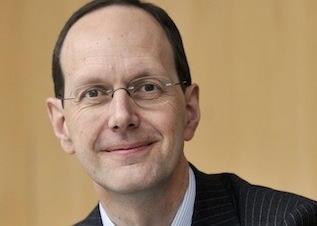The state pension triple lock needs to be review as part of wider focus on older workers, according to John Cridland, author of the government’s Cridland Review of State Pension Age in 2017.
The former CBI chief told MPs it needs to be reviewed to ensure it remains intergenerationally fair.
The triple lock means the state pension goes up by the highest out of inflation, earnings or 2.5%. But Mr Cridland told the Work and Pensions Committee it may be time to scrap it.
He said the triple lock had achieved its mission of undoing the damage done by previously removing the earnings link and that keeping it in place would put continuing pressure on state pension age.
He said people want their pensions, but they need to live long enough to receive it.
Mr Cridland described the need for employers to accommodate older workers as akin to considering maternity/paternity issues in the past.
Helen Morrissey, head of retirement analysis at Hargreaves Lansdown, said: “The state pension age conundrum was well summarised by John Cridland, who said: “people want their pension, but they need to live long enough to receive it.”
She said it’s a tricky balancing act – we are living longer, meaning we have a large cohort of older people either receiving state pension or who soon will be with enormous and growing costs.
She said accelerating state pension age may seem like the logical next step “but we need to remember not everyone can continue working into their 60s for health reasons and we can’t forget there remain large parts of the population who will not live long enough to draw a state pension for any considerable length of time.”
She said that brings the existence of the triple lock into question. In Cridland’s review of state pension age in 2017, he said there would come a point where the triple lock had done its job in raising state pension but that its continued existence would become unfair on younger taxpayers and force further increases in state pension age. “Has this tipping point been reached?”
She said: “It’s all part of a much larger conversation, not just of state pension, but of how we help older workers to remain engaged in the workforce.
“It’s an enormous shift for employers that Cridland compared to having to consider policies around maternity and paternity leave and pay and it’s one that should be grasped sooner rather than later.”
The government announced its plan to raise the retirement age to 68 by the end of the 2030s after the Cridland review was carried out in 2017.
But current Chancellor Jeremy Hunt is believed to be pushing for a rise to 68 by 2035 - potentially affecting the retirements of around 10million people currently between 45 and 55.

